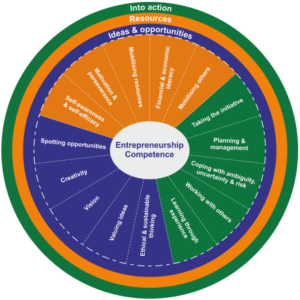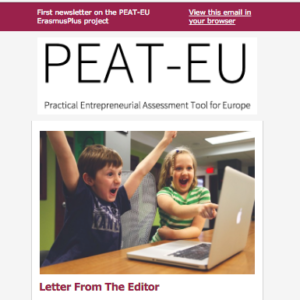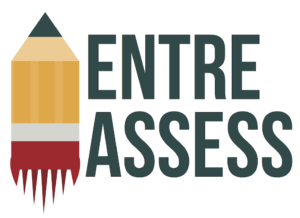Understanding current approaches to assessment of generic skills in Asturias
Valnalon has pioneered the promotion of entrepreneurship in the education system in Asturias (Spain). It plays a brokering role bringing together decision-makers, practitioners, researchers and other social agents such as employers and third sector organisations. It has the remit to design and implement a coherent portfolio of enterprise education projects in primary, secondary and VET under the frame of Regional Action Plan for Entrepreneurship.
Why we are part of EntreAssess
In spite of all action taking place, the assessment of the key competence ‘sense of initiative and entrepreneurship’ at school/classroom level remains as challenging as ever. This was our main reason to join the EntreAssess project.
Current approaches to assessment of generic skills in Asturias
So we started by asking ourselves what is exactly going on inside and outside the classroom during a whole school year when it comes to assessment of the entrepreneurial key competence? Is there room for manoeuvre or do teachers feel ‘handcuffed’ by curricular and administrative constraints?
A vital first step was to understand the minimum requirements that demarcate the playing field. All the curricular documents and guidance papers consulted highlight the need to develop, assess and report upon key competences or generic skills at both individual, school and system levels.
Next we joined forces with a group of 5 teachers (Primary, Secondary and VET levels represented). This Local Action Group meets on a monthly basis and has contributed to unveiling gaps and shortcomings in assessment process. The first output is a blueprint, a visual display enabling the documentation and alignment of front-end (classroom) and back-stage (out of classroom) interactions and touch points between key stakeholders (students, teachers, Heads, families).
In short, the assessment of EE competence in its current shape and form in Asturias schools can be defined as:
- Jazzy… with lots of trumpet-blowing in written form but patchy and incoherent protocols (if any) in spite of endless discussions and a landslide of CPD opportunities on the assessment of key competences provided in the last decade.
- Eyeball-based… largely and mostly based on teacher observation and largely oblivious to other methods such as self- or team-assessments.
- Post-mortem… or mostly summative, with teachers gathering together to report their observations on key competence development at the end of the school year relying almost exclusively on an impressive long-term memory to retrieve evidence for the progress made by each student during a whole academic year.
Findings and next steps
The picture that emerged was far from comforting, but the schools in our local action group are not sitting around waiting for things to change. Teachers are currently sharing some incipient measures adopted at school level as a reaction to shallow and patchy approaches to assessment currently in place. Pooling all these experiences together alongside those of our transnational partners’ may help us in transforming existing processes into a teacher-led, realistic and feasible approach to the assessment of EE competence in our schools.
Iván Diego Rodríguez, Coordinador Programa Educación Emprendedora, Valnalon




